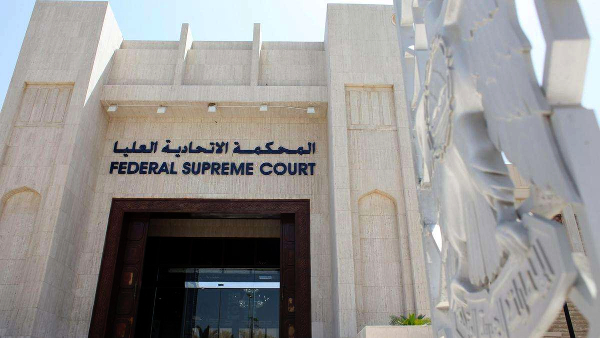Last week, the Ministry of Law and Justice issued an Extraordinary Gazette Notification, declaring the United Arab Emirates to be a “reciprocating territory” under Section 44A of the Civil Procedure Code, 1908.
The notification also declared a list of courts in the UAE to be “superior Courts” under the same section.
Apart from Dubai, the other countries declared to be “reciprocating territories” are: United Kingdom, Singapore, Bangladesh, Malaysia, Trinidad & Tobago, New Zealand, the Cook Islands (including Niue) and the Trust Territories of Western Samoa, Hong Kong, Papua New Guinea, Fiji, Aden.
What is a ‘reciprocating territory’ and what are superior courts?
Essentially, orders passed by certain designated courts from a ‘reciprocating territory’ can be implemented in India, by filing a copy of the decree concerned in a District Court here.
The courts so designated are called ‘superior Courts’.
What does Section 44 of the CPC say?
Section 44A, titled “Execution of decrees passed by Courts in reciprocating territory”, provides the law on the subject of execution of decrees of Courts in India by foreign Courts and vice versa.
Under Explanation 1 of S. 44A:
““Reciprocating territory” means any country or territory outside India which the Central Government may, by notification in the Official Gazette, declare to be a reciprocating territory for the purposes of this section; and “superior Courts”, with reference to any such territory, means such Courts as may be specified in the said notification.”
S.44A (1) provides that a decree passed by “a superior Court” in any “reciprocating territory” can be executed in India by filing a certified copy of the decree in a District Court, which will treat the decree as if it has been passed by itself.
According Explanation-2, the scope of the Section is restricted to decrees for payment of money, not being sums payable “in respect of taxes or other charges of a like nature or in respect of a fine or other penalty”.
It also cannot be based on an arbitration award, even if such an award is enforceable as a decree or judgment.
Which UAE courts are now “superior Courts”?
According to the Gazette notification, the following UAE courts have been identified–
(1) Federal Court-
(a) Federal Supreme Court;
(b) Federal, First Instance and Appeals Courts in the Emirates of Abu Dhabi, Sharjah, Ajman, Umm Al Quwain and Fujairah;
(2) Local Courts-
(a) Abu Dhabi Judicial Department;
(b) Dubai Courts;
(c) Ras Al Khaimah Judicial Department;
(d) Courts of Abu Dhabi Global Markets;
(e) Courts of Dubai International Financial Center.
Why is the move significant?
The decision is believed to help bring down the time required for executing decrees between the two countries.
The UAE-based Gulf News quoted Pavan Kapoor, the Indian Ambassador to the UAE, as saying that the notification was the only remaining part of a 1999 agreement between the UAE and India related to cooperation in civil and commercial matters.
Indian expatriates in the UAE would no longer be able to seek safe haven in their home country if they are convicted in a civil case in the UAE, a Khaleej Times report said.
Source:IE
Image Courtesy:The National
You may also like
-
IAF Aircraft Set Course For Exercise Eastern Bridge VII At Oman
-
India-us Working Together In Areas Like Critical Minerals, Supply Chains And Advanced Technologies: Shri Piyush Goyal
-
Defence Secretary to co-chair 5th India-Philippines Joint Defence Cooperation Committee meeting in Manila
-
2nd India-Japan Finance Dialogue held in Tokyo on 6th September, 2024
-
Prime Minister, Shri Narendra Modi welcomes Crown Prince of Abu Dhabi
